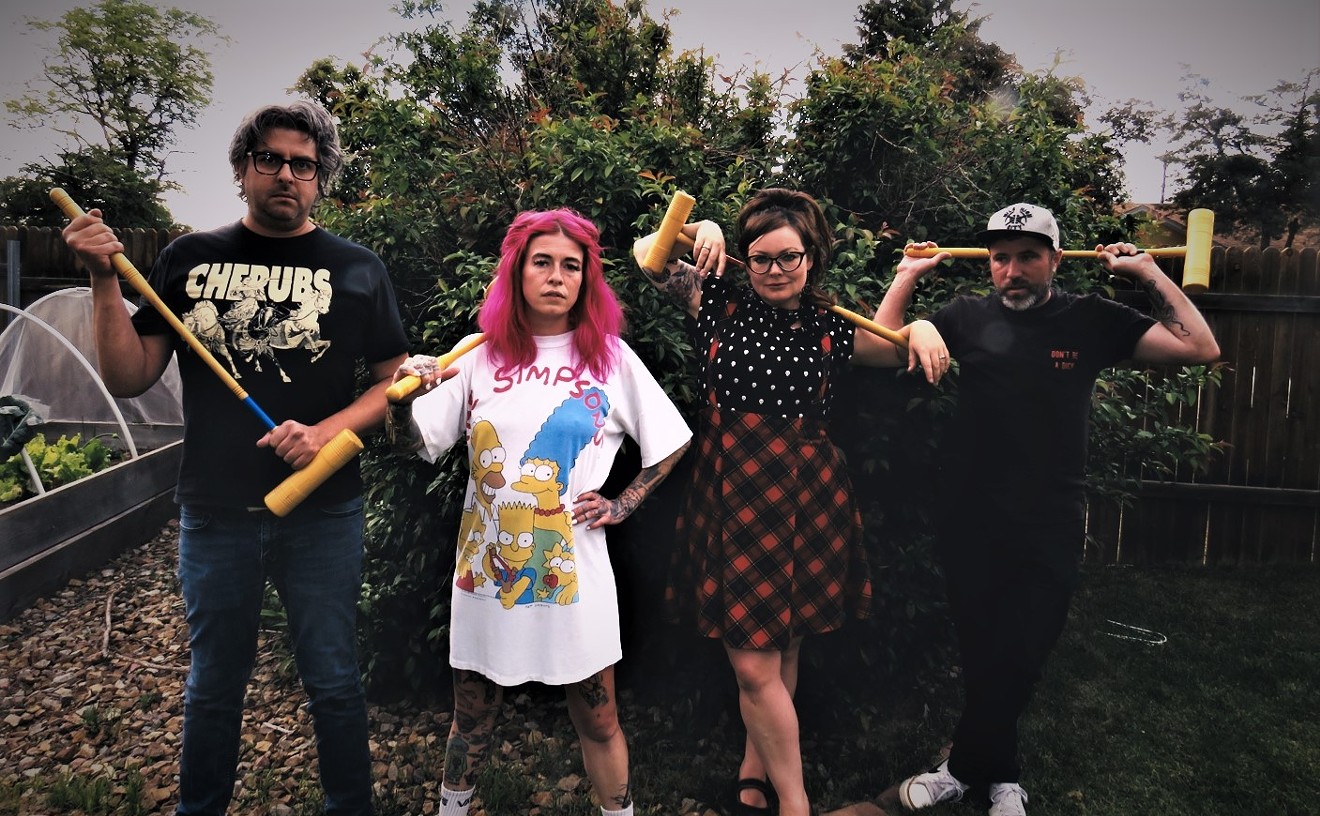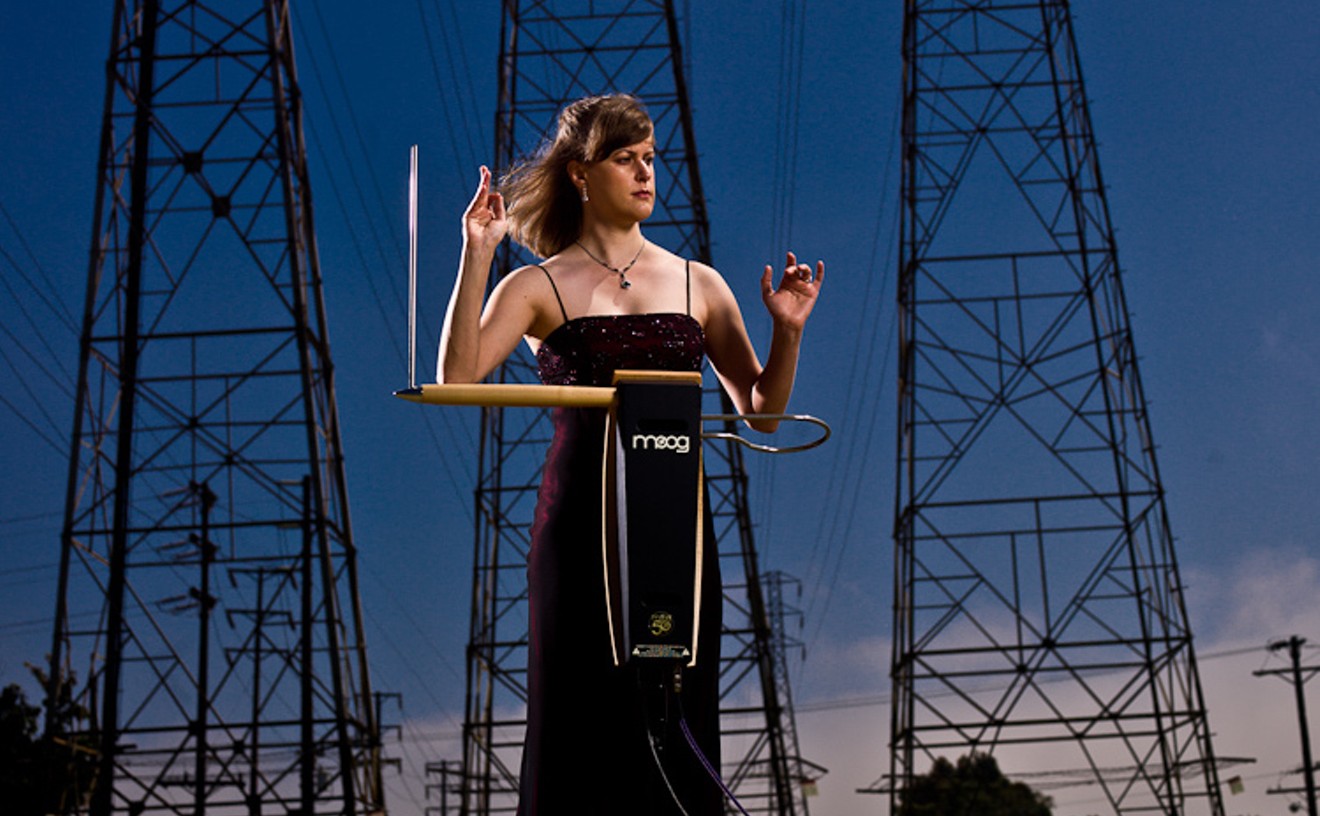The Parlotones is not a household name in North America, but it is one of the best known bands out of South Africa. With hit singles in its native country, the Parlotones started to make waves outside South Africa with its second album, 2005's Radiocontrolledrobot. Hailing from Johanesburg, the Parlotones were kids when the institution of Apartheid was ended bringing about a necessary but no less unsettling period of uncertainty about the future of the country they called home.
Culturally isolated, the guys in the band were exposed to "The English Scene" through cousins who had travelled to England and brought home the music of bands like the Smiths, Radiohead, the Cure and James. And it is the influence of that music that you can hear in the Parlotones' own well-crafted pop songs.
In its early days, the band had to carve out its own niche and develop its own touring circuit in South Africa, much as Black Flag had to in the earliest days of the indie underground circuit in North America.
The music of The Parlotones is far more melodic and upbeat, but in its songs you can hear the sound of people who never felt like they could take anything for granted in making music and getting it out into the world. We spoke with the band's charming and intelligent frontman Kahn Morbee about the group's background, its signature wines and its hard won success back home.
Was there the equivalent of a local scene where you're from, and did your band play that circuit before going further afield?
Not really. It still is a very difficult place. There's really only one venue in Johanesburg and one in Cape Town, and they are a fifteen hour drive away from each other. There wasn't really a vibrant music scene. There was always an inferiority complex compared to America and England and a sense that everything was much bigger and better and much higher quality than anything South Africa could produce. There wasn't any support for something local.
So what we did for many years was touring across the country and travelling with our own P.A., go town to town every night of the week and set up in restaurants, dance clubs and sports bars and create our own shows. We'd get there, set up the P.A., sound check and, if we traveled with another band, in the early days, we did sound for each other.
At the end of the night, we'd pack up and move on to the next town. Which would only be about a four hour or eight hour drive. It was a lot of hard work. I'm glad we did it because any level of success we experience now is a bonus. That's all there is, and you had create your own thing. We built a fan base by playing these towns over and over. We were the only event coming to town every three months.
"Giant Mistake" is a great pop song, how did that become the name for a red wine, and how did the also suggestively-named "Push Me to the Floor" become the name for a white wine?
We sort of thought that wine is only associated with these fancy names that lend themselves to fancy dining served with certain dishes. We wanted to be almost be tongue-in-cheek, and it's almost a brave thing, to call something "Giant Mistake."
I think we were saying that it was a giant mistake not to drink it. The song has a lot of metaphors that lend themselves to that side of life having to do with temptation, lust and that sort of thing. I think red wine, for me, has that story behind it. Romance, passion. I think it was a good marriage between the song and the wine.
"Push Me to the Floor" is a softer song. It's also quite a brave name. The thing that endeared me to the wine is that it had substance. Beer is sort of for an occasion but wine is something you can use for celebration, for romancing, for reflecting on a sad moment. It has that richness to it.
You have a song called "Louder Than Bombs," so I have to assume you're a fan of the Smiths. When did you first hear them, and what kind of impact did that band have on you?
Massive impact. Four singers I will claim to emulate are Morrissey, Thom Yorke, Billy Corgan and Freddy Mercury from Queen. When my older cousins came back from the UK, they would play for us the Smiths and the Cure, and it was different from music I heard on the radio at the time.
Because there was nowhere to play we used to hold these parties once a month called "Louder Than Bombs" and at these parties we had a DJ who would play music from "The English Scene," as we called it. When I wrote that song, it was an ode to those parties.
On Stardust Galaxies, you do a song with Zolani Mahola. Who is she, and why did you want to work with her?
She sings in a local band called Freshlyground. They play sort of world music. When we were insignificant, I'd heard a song of theirs called "I'd Like," and her voice was mesmerizing, like honey. We were half way through the recording process, and we were messing around in the studio when I phoned her up and asked her if she would sing on the song. And she said, "Cool." She's a great vocalist. She's small -- I think four foot six -- but a big voice.
Your music reminds me just a bit of another Manchester band called James. Kind of that combination of blue-eyed soul and post-punk with atmosphere. Was that band an influence on your music?
That's certainly is a band I listened to a lot of, and people have said my voice sounds very similar to his voice. I don't think I have a James album in my collection. But I know that it was music that would be everywhere when I was growing up. When we started going to clubs, we'd go to these indie evenings, and James would be an important part of the soundtrack we'd be dancing to. So it was an inadvertent influence, and I think you'll find they influenced bands I've loved.
Assuming you didn't start out as a huge band even in South Africa, at what point did you know that your band was becoming popular beyond people you could easily personally know?
This tells you how difficult it can be to do music in South Africa: We had a number two song on the radio, and then a few months later a number one, and we still weren't getting more than fifty to eighty people at a show. We knew things were changing when we started breaking the three hundred mark -- which isn't a lot of people at a venue -- across the country.
A lot of people didn't think we were from here. They thought we must be a foreign band. Even though we were playing in town, they didn't quite connect the dots. We had to keep going and hope that those three hundred people would tell their friends that, "That band is the one that did that song." Two and a half years passed and we were still working our day jobs and performing.
I think, for me, that it was the point at which we were able to quit our jobs and doing music. Even though we took a knock initially on what we were doing, that was the turning point. That only really came with our second album. That's when we could consistently pack venues.
There was no benchmark in our country. We were told that a rock band would be lucky to sell five thousand albums. Then people said we'd be lucky to make new albums. Obviously we've managed to beat that. I think the pinnacle of our career was packing a venue in South Africa called the Dome, and we didn't think that was something we'd even close to achieve. Now I think I can comfortably say that turning point has happened.











